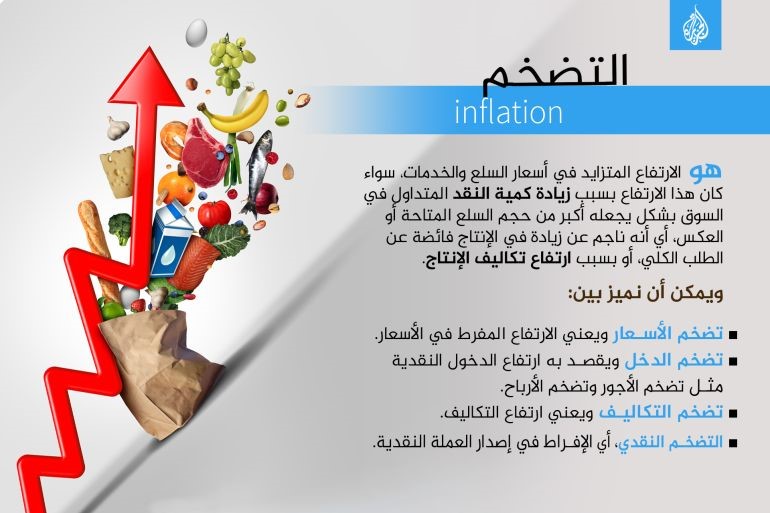The International Monetary Fund on Tuesday slightly lowered its global growth forecast for 2023 as the pace of rate hikes slowed. But the group warned that severe financial system turmoil could reduce production to near-standstill levels.
In its latest report on the global economic outlook, the IMF said risks of contagion in the banking system were contained through strong political measures following the collapse of two U.S. banks and the forced merger of Credit Suisse.
The turmoil adds to uncertainty over rising inflation and spillover effects from Russia’s war in Ukraine.
“Uncertainty about the global economic outlook has increased following the recent increase in financial market volatility,” the IMF said at the start of its joint spring meetings with the World Bank in Washington.
The fund added that when the financial sector is unstable, uncertainty increases and the balance of risks shifts strongly to the downside.
The IMF expects global real GDP growth to be 2.8% in 2023 and 3% in 2024, down sharply from 3.4% in 2022, due to tightening monetary policy.
The fund lowered its forecasts for 2023 and 2024 by 0.1 percentage point compared with the forecast it released in January. This was partly due to underperformance in some major economies and expectations of further tightening of monetary policy in response to persistent inflation.
The fund’s expectations for the performance of some major economies
- US: The IMF expects growth of 1.6% in 2023, down from the 1.4% forecast in January, given continued strength in the labor market.
- Germany: The economy is expected to contract by 0.1% in 2023.
- Japan: 1.3% growth in 2023 instead of 1.8%, based on January forecast.
- France: The IMF’s growth forecast for 2023 was unchanged at 0.7%.
- Euro area: The IMF expects growth in the region to be slightly higher than previously expected (+0.1 point) at 0.8% in 2023 due to high growth in Spain and Italy.
- UK: The IMF expects the economy to contract by 0.3% in 2023, compared to the 0.6% contraction forecast in January.
- China: The world’s second-largest economy will grow 5.2% this year before slowing to 4.5% in 2024.
- Russia: The domestic economy will grow by 0.7% in 2023 and 1.3% in 2024, despite increasingly stringent Western sanctions against Moscow.

That is, an increase in the price of goods and services. This rise may be due to an increase in the amount of cash circulating in the market, greater than the size of the commodity available or vice versa. That is, it is caused by production exceeding total demand, or by high production costs.
It can be divided into the following: price inflation: means that prices are too high; income inflation: means that cash income increases, such as wages or profits increase; cost inflation: means that costs increase; cash inflation: that is, too much money is issued. (Al Jazeera)
The turbulent situation in the banking system
While the IMF did not foresee a major banking crisis, its chief economist said the sharp deterioration in financial conditions comes as anxious investors try to test the “next weak link” in the financial system Likely to repeat itself, as they did with Credit Suisse.
The IMF report includes two analyzes that suggest the financial turmoil had a moderate to severe impact on global growth.
The fund said that in a “probable” scenario, pressure on at-risk banks such as Silicon Valley and signatory banks, which have suffered losses from tighter monetary policy and reliance on unsecured deposits, have failed, leading to funding conditions for all banks ” tightened,” amid growing concerns about the solvency of its banks and potential risks in the financial system.
This “modest tightening” of financial conditions could reduce global growth by 0.3 percentage points to 2.5 percent in 2023, the fund added.
The fund also cited a sharp slowdown in the broader implications of bank balance sheet risk, which has led to sharp cutbacks in lending in the U.S. and other advanced economies, a sharp drop in household spending and a shift to dollar-denominated “safe-haven” investment funds assets as a safe haven.
Emerging market economies will be hit hard by lower demand for exports, weaker currencies and higher inflation.

This scenario could reduce growth by as much as 1.8 percentage points to 1% in 2023, a level that suggests per capita GDP growth is close to zero.
Its negative impact could be about a quarter the size of the recession caused by the 2008 and 2009 financial crises.
Other downside risks highlighted by the IMF include:
- Sustained high inflation requires the central bank to further raise interest rates.
- Russia’s war on Ukraine is raging.
- Setbacks in China’s recovery from the coronavirus pandemic include growing difficulties in the real estate sector.
- What about inflation?
The IMF raised its forecast for core inflation to 5.1% in 2023 from 4.5% in January, and said that despite low energy and food prices, many countries had not yet peaked.
On the other hand, US Treasury Secretary Janet Yellen expressed optimism about the outlook for the global economy and said there was no sign of a credit contraction, although it could.
